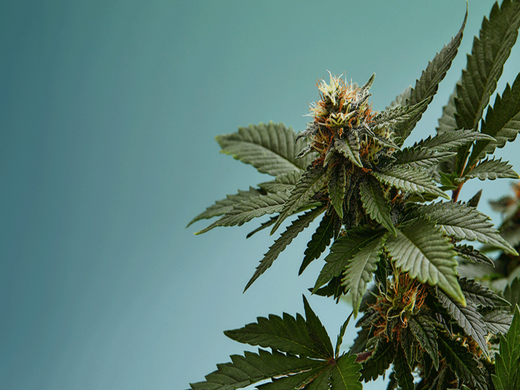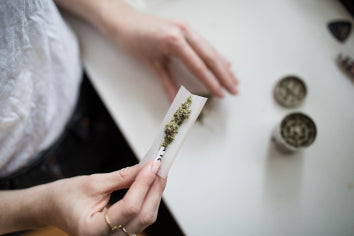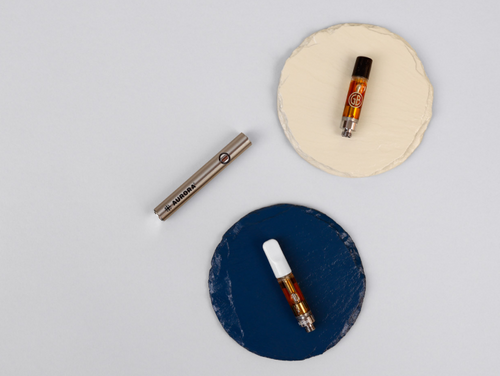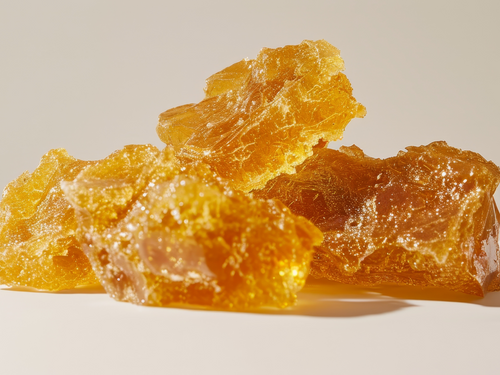Cannabis: A Brief History

Popular Articles
For millennia, cannabis has been a plant steeped in a rich and storied history. As we celebrate Cannabis History Month this April, we invite you to join us on a brief journey of cannabis, from its ancient origins to its modern-day legalization in Canada where it continues to bring Better Days to countless patients worldwide.
Cannabis in Ancient Times
There are several instances of cannabis being used throughout ancient history. From China to India and beyond, cannabis was used by several ancient civilizations for medical, spiritual, and practical purposes.
One of the earliest records of cannabis use dates to ancient China, where the plant was documented in the Shennong Bencao Jing, an early Chinese pharmaceutical book on agriculture and medicinal plants written around the 3rd century AD(1).
In ancient India, cannabis was revered as a sacred plant known as “ganja” or as an edible cannabis preparation known “bhang”(2). It was prominently used in religious and spiritual practices, often associated with the Hindu deity, Shiva(2). Historical evidence also indicates that Egyptians utilized cannabis for its strong hemp fiber in making ropes, textiles, and even sails for boats(3).
Early Prohibitions
However, despite centuries of demonstrating its many useful applications, cannabis faced early prohibitions in Canada with the passing of the Opium and Narcotic Drug Act in 1923. This legislation laid the groundwork for subsequent restrictions, including the prohibition on hemp cultivation in the 1930’s(4).
Nearly 40 years would pass before reforms gradually emerged, culminating in the Controlled Drugs and Substances Act of 1996(5). A significant milestone followed in 1998 with the implementation of the Industrial Hemp Regulations (IHR), which permitted licensed cultivation of industrial hemp of approved cultivars(6).
Canada Recognizes Access to Medical Cannabis
In 2000, the Canadian Court of Appeal ruled that legal possession and access to cannabis for medical need was a Charter right. This decision led to the Marihuana Medical Access Regulation Act (MMAR)(7) in 2001. The MMAR allowed individuals with a medical need to access dried flower by producing their own (or having a designated grower) or allowed patients to access direct from Health Canada for medical purposes with the authorization of their health care practitioner(7).
Evolution of Cannabis Regulations in Canada
In 2013, the Government of Canada implemented the Marihuana for Medical Purposes Regulations (MMPR), replacing the previous Marihuana Medical Access Registration Act (MMAR). This new regulatory framework allowed for commercial industries (later known as Licensed Producers) to cultivate, produce, and distribute medical cannabis(8).
The MMPR also introduced new practices that have since become industry standards, such as a patient registration process direct with licenced producers, strict quality control, secure record-keeping, and strict security measures8. Under the MMPR, approved patients could access quality-controlled dried flower cultivated under secure and sanitary conditions(8).
Yet another key milestone arrived with the decision by the Supreme Court of Canada in 2015 that access to dried cannabis only was unconstitutional. In 2016 the Federal Court of Canada determined that it violated rights of the Charter to only allow cannabis to be accessed through Licence Holders. These determinations led to the Access to Cannabis for Medical Purposes Regulations (ACMPR) in 2016 as a replacement to the MMPR(9). Under the new ACMPR, access to cannabis was improved with the ability for licence holders to produce oils & capsules as well as allowing patients able to grow a limited amount of cannabis for their own medical use or designate someone to grow it on their behalf(9).
Setting the Stage for Recreational Legalization
Having established a successful framework for medical cannabis, Canada took the final step towards full legalization with its landmark Cannabis Act in 2018. Also known as Bill C-45, this bill aimed to legalize the production, distribution, sale, and possession of cannabis for adult recreational use(10).
After years of careful deliberation, the Cannabis Act officially became law on June 19th, 2018. However, the actual legalization of recreational cannabis took effect on October 17th, 2018 – making Canada the first G7 nation to legalize cannabis nationwide.
Exactly one year later, on October 17th, 2019, Canada ushered in the second wave of legalization, known colloquially as “Cannabis 2.0.” This new extension of the Cannabis Act expanded legal cannabis products to include edibles, beverages, concentrates, and topicals for both medical and adult-use(10).
Explore our Cannabis 2.0 Products
Conclusion
We hope this blog post has deepened your understanding and appreciation for this remarkable plant. With a rich history spanning thousands of years, cannabis continues to shape lives today and for generations to come.
References:
- Rudgley, Richard (2005). Prance, Ghillean; Nesbitt, Mark (eds.). The Cultural History of Plants. Routledge. p. 198. ISBN 0415927463.
- Chopra IC; Chopra RN. The Use of the Cannabis Drugs in India. United Nations Office on Drugs and Crime. 1957;4-29. https://www.unodc.org/unodc/en/data-and-analysis/bulletin/bulletin_1957-01-01_1_page003.html
- Merlin, Mark D., and Abdel-Hameed A. ElSohly. "Cannabis in Egypt: Sherratt's ‘Narcotic Drugs in Ancient Egypt’ Revisited." Journal of the Economic and Social History of the Orient, vol. 43, no. 1, 2000, pp. 57-118.
- Opium and Narcotic Drug Act. (1923).
- Controlled Drugs and Substances Act. (1996).
- Industrial Hemp Regulations. (1998).
- Marihuana Medical Access Regulation Act (2001).
- Marihuana for Medical Purposes Regulations. (2013).
- Access to Cannabis for Medical Purposes Regulations. (2016).
- Cannabis Act. (2018).

















